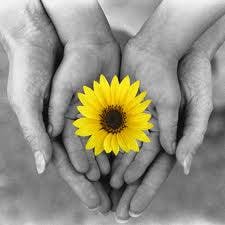Defining Responsibility
Jan 21, 2015
First story
Just writing and sharing thoughts on Personal Responsibility: If we are too accept responsibility, we need to define personal responsibility.
When you are being personally responsible you are in the process of making the choices that maximize your happiness and fulfillment. Personal responsibility is a positive concept whereby you are responsible for your well-being and making your own choices.
It contrasts with a common meaning of responsibility, namely that of responsibility to others, including living up to their standards. Though the process of personal responsibility can be far from easy, adopting it as a basic attitude toward living, liberates one to concentrate on how you can be most effective. It entails neither focusing on other people’s faults nor feeling that you need to say ‘my fault’ all the time.
There is statement by the ancient philosopher Epictetus on this matter:
It is the act of an ill-instructed man to blame others for his own bad condition; it is the act of one who has begun to be instructed, to lay the blame on himself; and of one whose instruction has been completed, neither to blame another, nor himself.
The word choice keeps reappearing in the attempt to clarify what personal responsibility means. During one’s life journey an individual is in a continual process of choosing. The psychologist Abraham Maslow saw life as a series of two-sided choices. One side represented safety and being afraid: the other moving forward and growth. He wrote: ‘to make the growth choice instead of the fear choice a dozen times a day is to move a dozen times a day towards self-actualisation.’ He therefore acknowledged that your fears can act as barriers to your making the choices that serve you best. The Viktor Frankl emphasises that, despite our fears and external difficulties, at no point in our life can you escape ‘the mandate to choose among possibilities”.
Are we always responsible for our choices?
The answer is ‘yes’, but with experience. Firstly, is that there is a maturational lag in that children’s capacity for reasoning develops later than their need to make some of the choices that help them live most effectively. Consequently, one way in which we develop skills deficits is through not having the early reasoning power to make good choices. Also, bad initial choices can then develop into bad relationship habits.
Secondly, albeit related to the first, is that an attitude of personal responsibility and the ability to make effective choices are learned. If learning from observing models and others’ behavior, which has been deficient that may well, have diminished the individuals effectiveness. Additionally, if the individual’s environment continues to be deficient in providing corrective learning opportunities this may further contribute to maintaining their skills deficits.
Lastly, many social factors may work against assuming one’s personal responsibility. Adverse conditions like poor housing, unemployment, poverty, racial discrimination, and poor educational facilities and content each may make it difficult for you both to learn to make and keep making the choices that serve you best despite such adversities. However, remove these adverse social conditions and problems of personal responsibility are still likely to be rife, if less physically uncomfortable.
There are many poor little rich people around, especially when the Western world’s affluence is compared to the level of existence of the poor countries. Some find the lack of structure of affluence much harder to face than the straightjacket of poverty. They are confronted with the need to create their own meaning in their lives.
So if we all need to be responsible adults, how do we balance personal responsibility with poor relationship skills in our families and communities?
Myrtle Adams-Gardner




